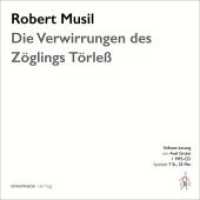- ホーム
- > 洋書
- > 英文書
- > History / World
Full Description
This book examines how changes in Russian politics, society and economy have influenced post-Soviet Russian foreign policy from the mid-1990s to the present. It considers important domestic changes within Russia such as the growth of Russian nationalism, the prevalence of corruption, the rise of oligarchs and economic lobbies, and the change of leadership. The author explores the degree to which Russian foreign policy in the post-Soviet era has been shaped by ideology and pragmatism, arguing that pragmatism has been consistently more important than nationalism in foreign-policy-making.This book will be of interest to students and scholars of Russian and Soviet politics, international relations, and security studies.
Contents
Introduction Part 11. The Growth of Russian Nationalism in the 1990s 2. Trends in Post-Soviet Russian Nationalism in the 1990s 3. Russian Nationalism and the Election Campaigns, 1995 and 1996 4. Foreign-Policy making in El'tsin's Second Term (1996-99) 5. Foreign-Policy Making under Putin Part 2: Case Studies of Russian Foreign Policy Areas 6. Russian and Russian-Speaking Minorities in the former Soviet Republics 7. CIS Integration 8. NATO Enlargement 9. Caspian Development 10. Conflict in the Caucasus 11. Tajikstan, Afghanistan, Political Islam and the 'War against Terrorism' 12. Arms and Nuclear Technology Transfers 13. World Trade Organization. Conclusion







